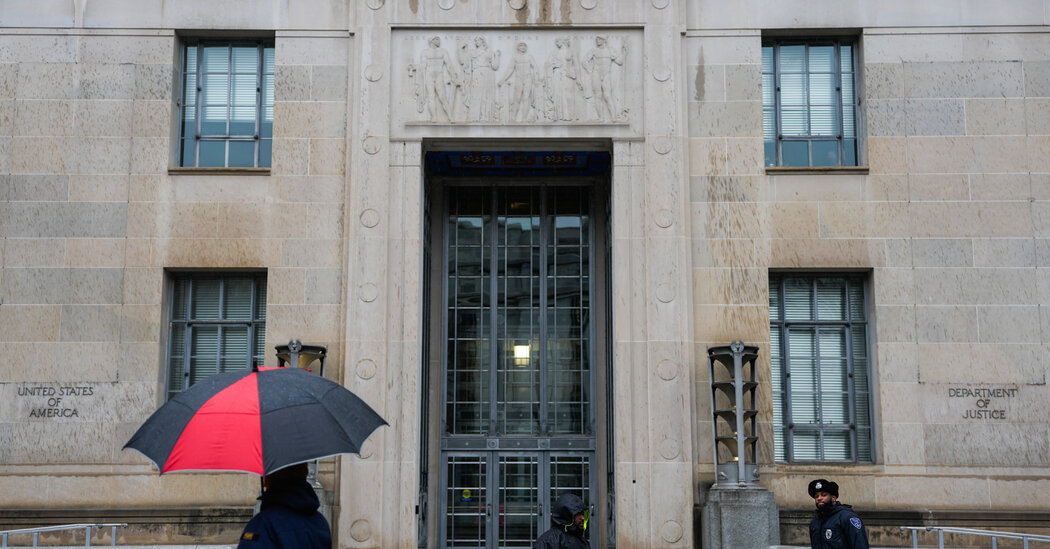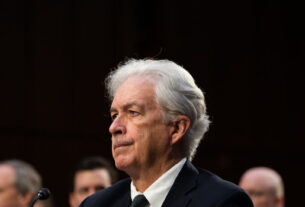The Trump administration told Congress on Thursday that it believed President Trump had the constitutional power to summarily fire administrative law judges at will, despite a statute that protects such officials from being removed without a cause like misconduct.
The move was the latest step in the administration’s unfolding assault on the basic structure of the federal government and on Congress’ power to insulate various types of executive branch officials in sensitive positions from political interference from the White House. The Trump administration disclosed its approach in a letter from Sarah M. Harris, the acting solicitor general.
Administrative law judges preside over administrative hearings in executive branch agencies. They are executive branch officials, not life-tenured members of the judicial branch, but they still perform judges’ role, including by administering oaths, taking testimony, ruling on evidentiary questions, and making factual and legal determinations.
Examples of such officials include Social Security Administration judges who handle disputes about disability and retirement benefits; National Labor Relations Board judges who resolve unfair labor practice cases; and Federal Energy Regulatory Commission judges who hear disputes about matters like electric utilities and regional grids.
To insulate the officials from political interference, Congress enacted a statute that says disciplinary action, including firings, may be taken against such judges “only for good cause established and determined by the Merit Systems Protection Board on the record after opportunity for hearing before the board.”
Ms. Harris’s letter to Congress also brought to wider attention that the Justice Department had said it would no longer defend the constitutionality of the law protecting administrative law judges in a little-noticed Feb. 11 filing in an appeals court case.
In that case, a paint company is challenging a fine imposed by an administrative law judge at the Transportation Department for violating a federal rule that requires paint cans to be packaged in a way that will keep them from leaking when transported on planes. The company is arguing, among other points, that because the president cannot remove such a judge at will, the judge’s position is unconstitutional.
In agreeing with that view, Ms. Harris pointed to a 2010 Supreme Court ruling that struck down a statute in which Congress had set up a certain government agency to have two layers of insulation from presidential control. The agency’s board members could be removed only for cause, and they, in turn, were overseen by the Securities and Exchange Commission, whose members could also be removed only for cause.
In the same way, Ms. Harris said, administrative law judges are not only protected by the statute that says they can be removed only for cause, but Congress put the decision over whether there was cause for termination not in the hands of the president but in those of the Merit Systems Protection Board.
That board — a key part of civil service protections Congress established to professionalize the federal work force and guard against political patronage — is itself insulated from direct presidential control by a statute that says its members “may be removed by the president only for inefficiency, neglect of duty, or malfeasance in office.”
Notably, Mr. Trump has already violated the latter statute by summarily firing Cathy Harris, the chairwoman of the board, prompting her to sue. On Tuesday, a federal judge temporarily reinstated her, though the Trump administration has appealed.
Sarah M. Harris previously told Congress that the administration considered limits on firing members of independent agencies to be unconstitutional as well.
The Trump administration has embraced an ideology called the unitary executive theory. That doctrine says the Constitution should be reinterpreted to prohibit Congress from placing any limits on the president’s ability to impose total control on the executive branch, including to fire subordinates at will.
Since taking office, Mr. Trump has violated numerous statutes in which Congress set limits on when various types of officials can be fired, including inspectors general, members of independent agencies and civil servants.
Many of the firings have led to lawsuits, setting up test cases to see if the Supreme Court will strike down those statutes and expand the power of Mr. Trump and future presidents.
In a statement, Chad Mizelle, the chief of staff to Attorney General Pam Bondi, hailed the administration’s move to challenge the statute insulating administrative law judges from political interference by the White House.
“Unelected and constitutionally unaccountable A.L.J.s have exercised immense power for far too long,” he said. “In accordance with Supreme Court precedent, the department is restoring constitutional accountability so that executive branch officials answer to the president and to the people.”





